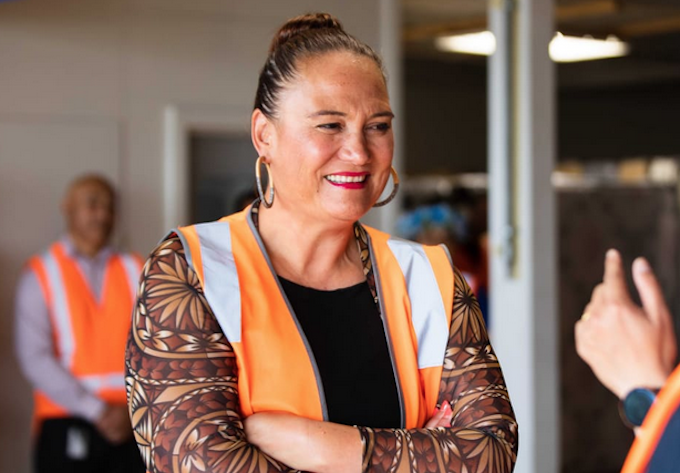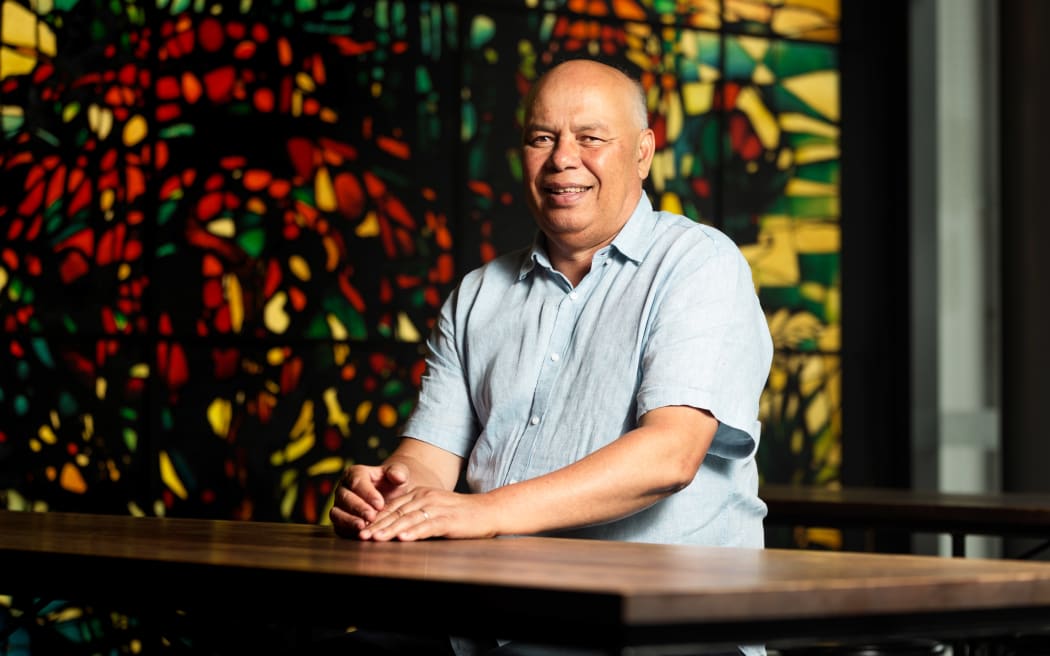
Leaders in Aotearoa New Zealand’s Pacific community believe the appointment of the country’s first deputy prime minister of Pacific descent will bring positive change.
Incoming Prime Minister Chris Hipkins — who is taking over the reins from Jacinda Ardern just nine months away from the general elections — chose Carmel Sepuloni as his deputy yesterday.
She also made history 15 years ago when she became New Zealand’s first Tongan MP.
- LISTEN TO RNZ MORNING REPORT: ‘Our ancestors’ courage, perseverance, and resilience has been marked and rewarded today’
- ‘There are serious social issues in our communities that need to be addressed’
- Other NZ politics reports
Reverend Setaita Veikune of the Methodist Church of NZ told RNZ Morning Report the Kelston MP’s promotion would serve as an inspiration for the younger generation, particularly girls.
“This is a visible example of what we can achieve and proof that for our people, the sky really is the limit,” she said.
“Carmel being a Tongan, Samoan woman as deputy prime minister, is a profound contribution in my opinion to eliminating negative stereotypes and reducing unconscious bias against us.
“This alone does more for our communities than many realise, such as reducing advancement barriers, which are biased against us in different spaces.”
Historic moment
Pacific community leader Sir Collin Tukuitonga told Morning Report this was a historic moment not just for their community, but the whole country.
“I think it’s a statement of ourselves as a nation that perhaps we’re maturing and being serious about inclusivity.”
Sepuloni’s experiences and networks in Pasifika and Māoridom communities would bring benefits as she supported Hipkins’ leadership, he said.
Veikune hoped Sepuloni — who currently holds portfolios for social development, Accident Compensation Corporation (ACC), and arts, culture and heritage — would work to bring the Pasifika community forward with her.
“I find her very strong in her quiet and humble way . . . She brings strength, courage, and determination, to do what is required, and I believe her humility is something that will take us forward greatly.”
In an interview with E-Tangata in 2017, Sepuloni said she had thought of entering politics from a young age, with the ambition of helping create a fairer society.
“Interestingly, growing up — and friends still remind me of this — I used to say that this is what I would do. That I would be a politician. And they found it so funny at the time,” she said.
‘Unfairness around us’
“We can see the unfairness unfolding around us, whether it be health statistics or educational outcomes. Pay inequality. All of those things that we see in our own lives, our families’ lives, and our communities. So, I think it’s really difficult not to feel political in some way.”
As Minister of Social Development for the past five years, Sepuloni has been steadily reforming the system via measures including raising benefit levels, adopting a less punitive approach to sanctions and overseeing a review of the Working for Families welfare scheme.
Writing in the Herald at the time of ram raids last August, Sepuloni reflected on her time as an at-risk youth educator with tertiary students.
“I’ve seen what works and what doesn’t, and punitive approaches to young people – or people in general, really – already experiencing complex challenges don’t. I liken it to pushing someone over who is wanting and trying to get up, while yelling at them to get up.”
But in 2021, a report from Child Poverty Action Group found almost three years on from the Welfare Expert Advisory Group’s 42 recommendations for overhauling the system, none had been fully implemented.

Sir Collin said it would be tough to lay all of the blame on Sepuloni alone — it was more complex than that.
Building consensus
“She would have to build consensus from among a number of parties to get those implemented, she has moved on some of the recommendations but I think it’s a bit rough to just put it on her.
“There will be expectations and some would say she’s now in a deputy prime minister role that perhaps she will have a bit more sway and influence in getting these things done.
“There’s no question there are serious social issues in our communities that need to be addressed, I expect that Carmel would need to lead that process of building consensus and acting on those priorities.”
While Sir Collin acknowledged he was among those who criticised the government in the early days of the covid-19 pandemic over the “sluggish and slow” response to the outbreak in Pacific communities specifically, he said they got it right in the end.
This article is republished under a community partnership agreement with RNZ.












































